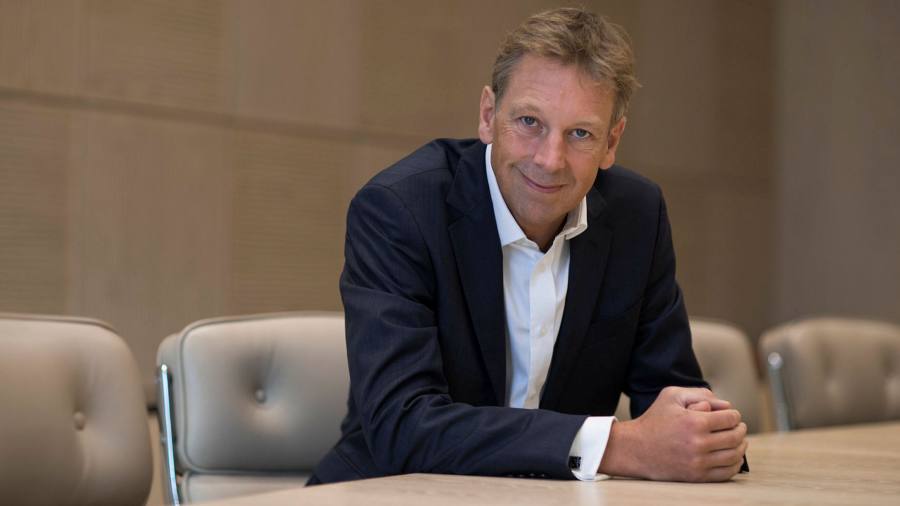[ad_1]
Jakob Stausholm knows all about dealing with the fallout from a corporate crisis.
As chief internal auditor at Royal Dutch Shell, he was one of the executives charged with getting to the bottom of a reserves reporting scandal that rocked the company in the early 2000s.
The Danish executive is using those skills again in his new role as head of Rio Tinto, the miner that caused an international outcry last year when it destroyed a sacred 46,000-year-old Aboriginal site to make way for a mine expansion.Â
The incident damaged Rio’s reputation and also its relations with indigenous groups in Western Australia, home to its prodigiously profitable iron ore business. It also cost the company’s former chief executive Jean-Sébastien Jacques his job.
Stausholm, whose career also includes finance and strategy roles at facilities group ISS and shipping company AP Moller-Maersk, has made restoring trust with traditional landowners and other stakeholders in Australia his priority.
One of his first moves — after reshuffling his senior leadership team — was to fly from his home in Copenhagen to Perth so that he could make a personal apology to the Puutu Kunti Kurrama and Pinikura people, the traditional owners of the Juukan Gorge site.Â
“We need to be a more outward looking company,†Stausholm said on Wednesday after presenting his first results as chief executive from Perth. “We need to engage much more with society.â€
A keen sailor and fan of endurance sports — cross-country skiing is a favourite pastime — Stausholm was appointed Rio chief executive in December.
That followed two years as its finance director, where he had a reputation for immersing himself in data and a tense relationship with his hard-charging predecessor.
Stausholm, who is 52 and 2 metres tall, cuts a very different figure from his predecessor, a spiky French executive who took a single-minded approach to running one of the world’s biggest mining companies.
Stausholm is promising a more inclusive leadership style with a focus on teamwork.Â
“I spent a lot of time at the beginning of the year selecting my senior team,†he said. “The trick for me is to develop that team so it’s not me who has all the answers and it’s not me who takes all the decisions, but we can really empower the team and they can empower the rest of the organisation.â€
It is a style that has been welcomed by analysts. “He does come across as collegiate and that’s what Rio needs: a bit of humility to maximise positive engagement with its stakeholders,†said Richard Hatch, analyst at Berenberg.
Still, the appointment was not been universally welcomed.
Doug McMurdo, chair of the UK Local Authority Pension Fund Forum, criticised the choice of an internal candidate with a financial background and limited operational awareness as “bizarre and not what the company appears to requireâ€.
Many analysts thought Rio chairman Simon Thompson might choose an outside candidate to shake up the group, while Canberra wanted an Australian for the job.
Even Stausholm is said to have been a little surprised when he got the call from Thompson.
Advisers who have worked with him said there is a tough side to his character that is not always obvious. “Rio is an organisation in need of a strategic direction. Jakob knows that.â€
But before the ardent yachtsman can chart a new course for the $144bn group there are several other questions he needs to address in addition to the fallout from Juukan Gorge.
One of them lies below the Gobi Desert in Mongolia where Rio is spending almost $7bn to develop a huge underground copper mine.
The Oyu Tolgoi copper project has been hit by delays and cost blowouts that have prompted disputes with the government. The Mongolian People’s Party is now threatening to delay completion of the mine, scheduled for October 2022.Â
Twice weekly newsletter

Energy is the world’s indispensable business and Energy Source is its newsletter. Every Tuesday and Thursday, direct to your inbox, Energy Source brings you essential news, forward-thinking analysis and insider intelligence. Sign up here.
“The more time you spend on this, the more complex you realise it is,†Stausholm said of the flagship growth project. “So it has to start with building the relationship and then you find mutual solutions.â€
However, the huge profits and record $9bn dividend announced by Rio this week did not go unnoticed by government officials in Mongolia who are embroiled in a long-running tax dispute with the company.
Another issue facing Stausholm is whether to develop Rio’s share of a huge iron ore deposit in Guinea. That decision will shape the future of Rio’s most profitable business unit and also the global iron ore market.
While Stausholm thinks iron ore, which is used in steelmaking, has a “tremendous future†he also wants Rio to be more proactive and “grab†opportunities in other metals and minerals created by the energy transition. This is likely to come through developing new projects although small deals are not ruled out.
For now though, his focus remains on repairing Rio’s standing in Australia, where he could stay until the company’s annual general meeting in May. “I think it’s here that probably I can add most value and be most effective,†he said.
[ad_2]
Source link





